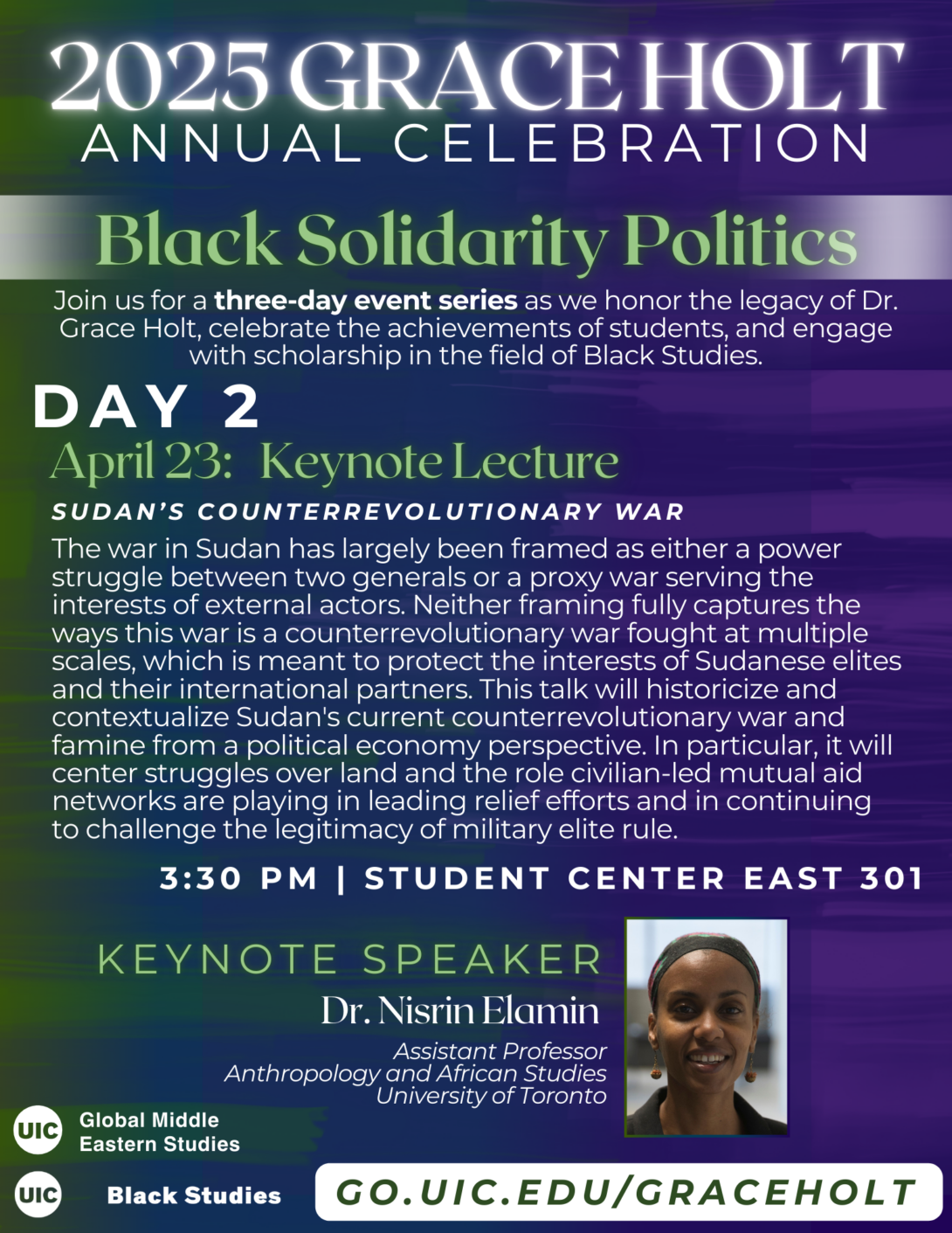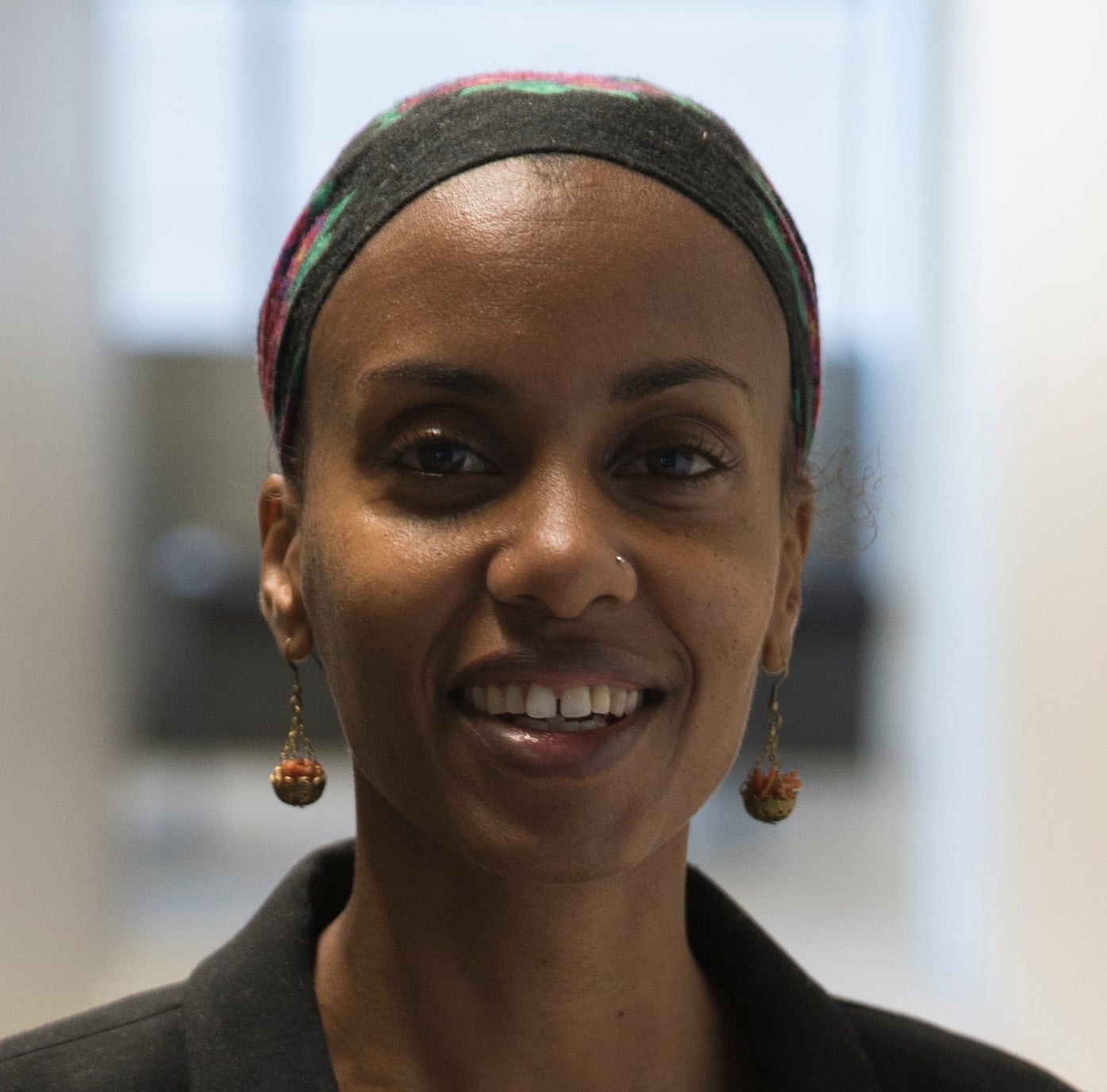2025 Grace Holt Lecture and Awards Ceremony
2025 Grace Holt Celebration
April 23, 2025
3:30 PM - 6:00 PM Central Standard Time

Join us for our annual Grace Holt Lecture and Celebration! This event honors the tremendous work and legacy of Dr. Grace Holt, the founder and first director of the UIC Department of Black Studies. It also serves the purpose of engaging our community of faculty, staff, students, and alumni with emerging scholars and pressing issues in Black Studies as well as providing a space for reconnection and networking.
The 2024 Grace Holt Lecture and Celebration will take place in-person on April 23rd, 2025 at 3:30pm CST in Student Center East (SCE), Room 301. The awards presentation, keynote lecture and Q&A will be live-streamed. Please RSVP to receive the livestream link.
Following the presentation of the 2025 Grace Holt Awards, Dr. Nisrin Elamin, will deliver the keynote address entitled: Sudan's Counterrevolutionary War. The war in Sudan has largely been framed as either a power struggle between two generals or a proxy war serving the interests of external actors. Neither framing fully captures the ways this war is a counterrevolutionary war fought at multiple scales, which is meant to protect the interests of Sudanese elites and their international partners. This talk will historicize and contextualize Sudan's current counterrevolutionary war and famine from a political economy perspective. In particular, it will center struggles over land and the role civilian-led mutual aid networks are playing in leading relief efforts and in continuing to challenge the legitimacy of military elite rule.
An in-person reception will follow the keynote and Q&A.
The 2025 Grace Holt Celebration is co-sponsored by UIC Global Middle East Studies.
COVID safety:
UIC does not require masking; however, we are asking that all attendees wear a mask. This is an accessibility measure for chronically ill/immunocompromised people and those living interdependently with them. Black Studies will have extra masks on hand the day of the event. During the reception, attendees will be able to unmask briefly to eat refreshments, but we ask that attendees seated for the lecture and Q&A wear a mask if this is accessible to them.
Access Information:
- CART (live captions) will be provided.
- 301 SCE is located on the 3rd floor of Student Center East (SCE) Tower and is accessible by elevator. Directional signs will be posted on the day of the event.
- SCE is near the Blue Line, Roosevelt (#12) bus, Harrison (#7) bus, Halsted (#8) bus, and Taylor (#157) bus. There is a drop-off area on Halsted Street and the Halsted and Taylor Street Parking Structure (760 W Taylor Street) is located across the street at Halsted & Polk. More information on parking and public transit can be accessed here: https://meetings.uic.edu/about-us/directions-and-parking/#parking.
- SCE has all-gender and accessible restrooms available, though many do not have automatic doors.
- Contact blst@uic.edu with any other access questions or requests. Black Studies staff will be available during the event for access requests.
Date posted
Mar 20, 2025
Date updated
Apr 9, 2025
Speakers
